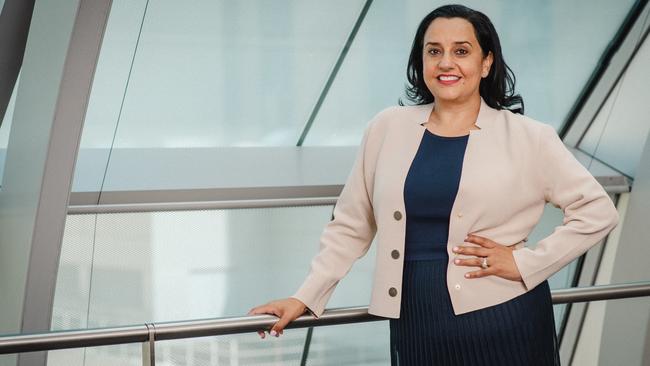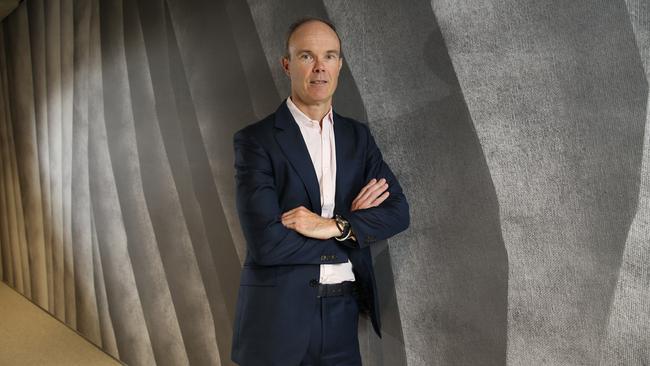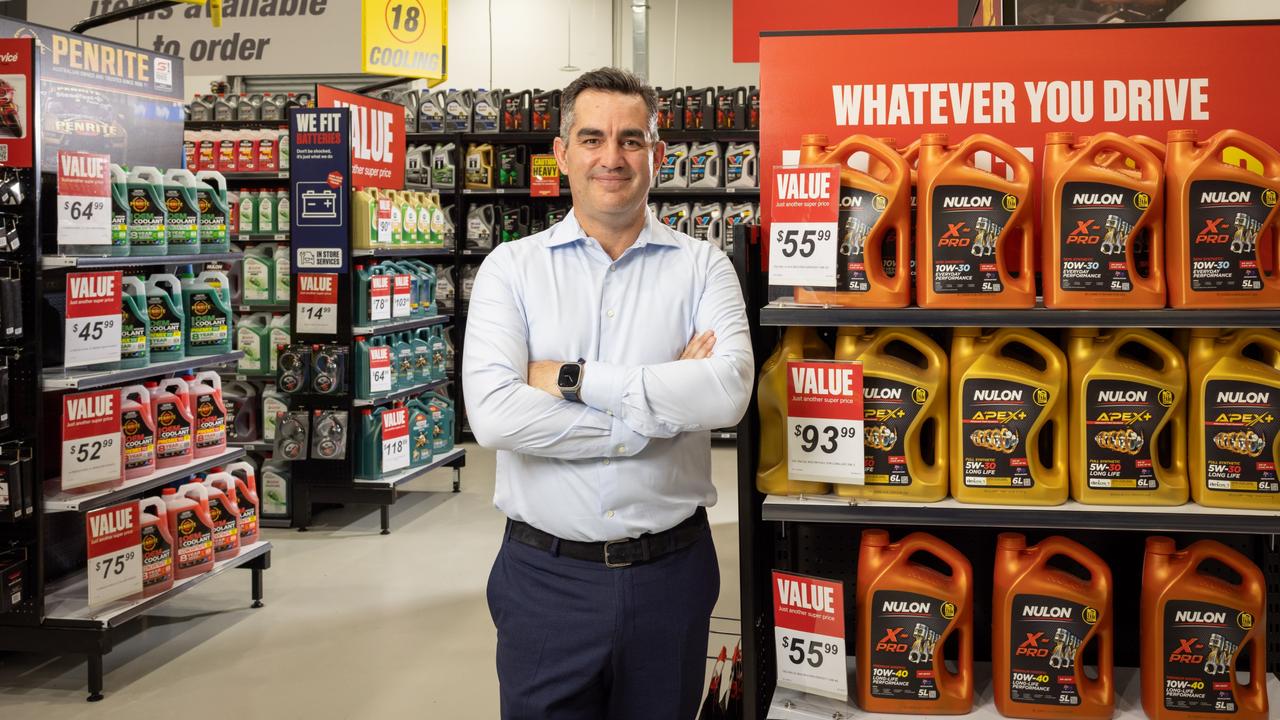Can new chief Sophia Rahmani make Magellan great again?
Even if Magellan’s new CEO Sophia Rahmani pulls out all the stops, will it ever get back to the $100bn-plus market darling it was before?

Business
Don't miss out on the headlines from Business. Followed categories will be added to My News.
Sophia Rahmani has disproved the theory that there is no such thing as bad publicity.
The chief executive of former market-darling Magellan is just three months into her role and one of the best bits of news so far about her trying to right the ship – is no news at all.
For three years funds manager Magellan was the headline-grabbing motorway pile-up that other drivers couldn’t help but gawk at.
Funds under management plummeted from $100bn-plus to a low of $34.3bn after its high-profile co-founder and chief stock picker Hamish Douglass left amid controversy and poor fund performance. A series of new bosses failed to arrest the decline.
“The board should be receiving a report showing how often they haven’t appeared in the newspaper these days,” says Gabriel Radzminski from Sandon Capital, which owns Magellan stock. “That’s a positive … we are really pleased with how the business is performing.”
Just how well it’s performing will be revealed on Thursday. It will be baby steps at best.
To be sure, the company has had several months of small FUM increases – an improvement on the previous few years of decline. It’s enough that Sandon and ratings company Morningstar are now looking for a capital return while Magellan is eyeing off an acquisition.
But let’s be clear. This is an underperforming company showing signs of improving in an industry suffering a dramatic structural decline. Active fund managers are seeing dollars flow out the door to cheaper exchange-traded products. It will be survival of the fittest. “We see a zero-sum world for traditional active managers,” said Morningstar equity analyst Shaun Ler. “Business wins are likely to be at the expense of close peers rather than structural gains from low-cost alternatives.”
Rival Perpetual found this out the hard way after a series of ill-conceived takeovers designed to give it more scale led instead to higher gearing and funds flowing out the door. Perpetual will now likely be broken up and its funds unit lose its famous brand name in the process.
Over at Magellan, its problems are both structural and of its own making. Chairman Andrew Formica has done much to address the company’s dramas since he started last year. First he got rid of the incumbent CEO and replaced him with Rahmani, who has industry experience.

He extinguished debts incurred by key staff to buy now-underwater stock options, and converted units in the $2bn-plus closed-end fund – the Magellan Global Fund – into an open-ended exchange-traded product.
That decision will lead to a loss of about $1bn in FUM and tens of millions in management fees that go with it, but at least ends a potentially litigious situation.
“Andrew Formica has grabbed the bull by the horns,” says Radzminski. Whether Rahmani can now train the bull to compete remains to be seen.
“It’s still too early, in my opinion, to assess (Rahmani’s) progress,” says Ler. “I think we need to give her a little bit more time.”
Rahmani was poached from Maple-Brown Abbott by Formica, who himself has a weight of experience from running Janus Henderson and Jupiter Funds Management in the UK.
There are signs this newly minted team is making progress.
The fact Magellan has managed to keep pace with the index without owning the world’s most coveted stock, Nvidia, which has jumped 126 per cent this year and 2632 per cent over five, means it can present to clients as being diversified from Silicon Valley’s favourite stock.
“They have demonstrated that they are prepared to be different from their peers,” says Radzminski. “It can be seen as having a sound diversified portfolio construction which should be attractive to financial planners.”
The market will be looking for guidance on Barrenjoey, that Magellan was a seed investor in and now looks to be starting to earn its way as an investment bank, having clipped most of the big deal tickets, including the float of Mexican fast-food chain Guzman y Gomez.
The Sandon founder says he is a holder of his Magellan stock and is buoyed by what he is seeing.
Ler, on the other hand, believes Magellan has not yet done enough to instil such confidence.
“The performance hasn’t really turned around meaningfully,” says Ler. “A lot of the flow improvements they have seen in recent periods, might be one-off, or they might not be sufficient to offset the outflows from other underperforming products, like global equity products.”
Ler says he will be looking to see what sort of measures are being taken towards improving organic growth and what it will do about improving capital management. “If your business is in decline, there are no suitable acquisition candidates to buy, and if your principal investments are not delivering the right returns, then I think the right thing to do is to just return that capital back to shareholders.”
Originally published as Can new chief Sophia Rahmani make Magellan great again?





